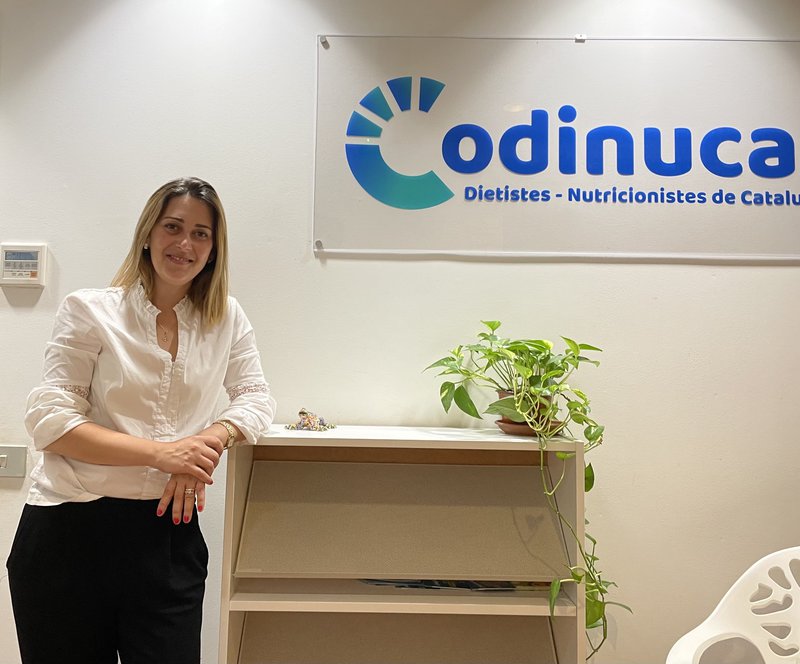“We’ve become the only area in Spain with dietitian nutritionists in primary care” “THERE WAS A HIGHER INTAKE OF ALCOHOLIC BEVERAGES, SUGARS AND FLOURS DURING THE LOCKDOWN”
Are dieticians gaining more recognition in society?
Society now realises that the figure of the dietitian nutritionist exists, but much remains to be done. The association has worked to make the figure more visible, but we need to continue the efforts to make it more visible in hospitals and care homes.
A recent milestone was becoming part of primary care. What will it involve?
It’s due to work that’s been done for years, and with Catalonia’s Public Health Agency we’ve managed to become the only area in Spain with dietitian nutritionists in primary care. Recruitment began in January, although some people had been hired before that. Some CAP’s (Primary Care Centre) already had a dietitian, while others are still in the process of recruiting one. It was announced that 150 would be hired.
Many people would say there’s no need to see a nutritionist to eat well.
People say they know what it means to eat well, but they don’t. Obesity and eating disorder rates show that. The nutritionist not only sets a diet but also provides you with good habits, gives you a nutritional education, makes recommendations and guides you through the whole process.
Should everyone go to a nutritionist?
People often only go to a nutritionist dietitian when there’s a pathology or because a doctor recommended it, but as health professionals, like physiotherapists or psychologists we can really help anyone.
Do we know how the pandemic has affected eating habits?
There’s been an increase in eating disorders. We also saw higher intakes of alcoholic beverages, sugars and flours during the lockdown. Although it is not exaggerated, this has led to an overall increase in weight.
How can we reverse this trend?
The advice is clear: try to keep to schedules and do not change your eating times, while making meals as healthy as possible. If you do see an increase in weight, remedy it as soon as possible. We should try to buy fresh products and avoid processed food. And if it can be local, all the better. That means fruit, vegetables, eggs, meat, fish... The less elaborate, the better. And it’s also better if we make it ourselves. If we don’t have processed foods in the pantry, then if we can’t eat them.
Should certain foods be banned?
It’s been shown that banning certain foods for certain age groups can be even more harmful, because the ban leads to abuse. However, banning ads for sugary drinks for children in certain time slots can help reduce their consumption. This advertising restriction is a milestone but more regulation is needed online and on social media.
Is the Mediterranean diet still valid?
Of course. This is the focus of the Public Health Agency’s guide for school canteens. Moving towards more vegetables, less processed products, fresher products, and more animal products. And most importantly, including nuts and legumes in our diet.
And what about “superfoods”?
Our superfoods are olive oil and nuts. It’s because of the fatty acids they have, which is a healthy type of fat that reduces the risk of cardiovascular disease. We have these things here and there’s no need to seek out exotic produce from other lands.
More and more young people are turning vegetarian. Are these diets safe?
If you want to follow a vegetarian diet, get advice from a registered dietitian so the diet is right for you and, most importantly, there are no nutritional deficiencies.
One problem is all the messages we get from advertising, social media,...
Or people give food advice that can be wrong because they took a 10-hour course. That’s why we ask people to be guided by our members. People should only go to registered dieticians and not just anyone they find on the internet. This is the only way to put an end to inaccurate or false beliefs.
interview nutrition

